Medical procedures are expensive, even if you have insurance. Many people have high balances, and juggling medical debt with other expenses can be difficult.
If you find yourself struggling to pay hospital or doctor’s bills, there are solutions you can explore. Figuring out how to pay off medical debt will bring you one step closer to financial freedom.
4 Ways To Pay Off Your Medical Bills
Figuring out which method of paying off your medical bills will work best for you depends on your lifestyle and finances. Here are the top ways to tackle your medical debt.
Payment Plans
Check with your provider’s office to see if they offer a payment plan. They may be able to provide you with a no-interest or low-interest payment schedule. Setting this up with your provider will help prevent your account from going to collections. If you’re on Medicaid, you might have income-based options.
Financial Assistance
Other places you can look for relief are organizations, nonprofits, or public programs. They can offer resources and assist in finding grants or other financial assistance. Some of these might be limited to specific conditions, so more research might be required to find ones that apply to you.
Using Credit
Some healthcare providers offer medical credit cards with deferred interest rates for an introductory period. However, when that period is over, all the interest you would have accrued is added to the balance immediately. So, paying off your medical debt before that happens is in your best interest.
If this isn’t possible, consider getting a new credit card with a zero-interest intro rate. Using credit cards to pay off other debts isn’t always the best choice. However, if your medical bills fit within your credit limit, it could work. Just ensure you can pay it off before the interest rate goes up.
Get a Loan
Consider a debt consolidation loan if you have many medical bills or different types of debts. Getting this type of personal loan for your medical bills allows you to combine several debts into one monthly payment.
Another benefit is that debt consolidation loans, like those from Balance Credit, are unsecured. This means you don’t need to provide collateral to get the money you need. Keeping track of one payment makes your finances more manageable and can help you understand your financial situation better.
How Medical Debt Impacts Credit Scores
Back in April of 2023, the three credit bureaus removed any medical debt under $500 from credit reports. Debts over that amount will still show on your report. They will stay there for seven years and affect your credit rating.
In January, 2025 the Consumer Financial Protection Bureau (CFPB) finalized the rule to remove medical bills from credit reports entirely.
Here is what the rule says explicitly about medical debt on your credit report:
- Lenders cannot use medical debt as a determining factor of creditworthiness
- Credit reporting agencies cannot include medical debt on reports sent to creditors if the creditor is not allowed to use that information.
- Lenders cannot use medical equipment or devices as collateral and cannot be repossessed if the loan defaults.
Removing medical bills from credit reports means you won’t have to worry about them hurting your credit score. This change can help you qualify for other types of credit you have been denied previously.
Tips For Handling Medical Bills
Before deciding on a strategy for paying off medical bills, you should consider a couple of things. Knowing how much you owe and if you can lower that amount will help you devise a plan to pay your medical bills. Once you know the final amount, you can decide what strategy for paying off medical debt is best for your situation.
Check for Errors
Reviewing every medical bill you receive is crucial since it can be inaccurate. Look for duplicate or unknown charges. Talk to your health provider or insurance company to make sure your bill is correct. If there are discrepancies, you can work with them to resolve them before paying the balance.
Be mindful of surprise bills as well. These can come from out-of-network providers or practices.
Negotiate
Once you have your final balance, you can negotiate it down. There is no harm in contacting them and asking about a reduced price. It might work out to your benefit.
Reach out to your doctor or hospital’s finance department. You might get a lower total if you can pay the sum immediately, or they might offer you an income-based rate.
How Balance Credit Can Help You Manage Medical Debt
Dealing with medical debt can be overwhelming, but there are solutions available to you. If options like payment plans or credit cards aren’t a good fit, a medical debt loan from Balance Credit could be a more efficient solution.
Balance Credit offers unsecured loans, which means you don’t need to provide collateral. Our simple application process helps you get the money you need quickly.
Our team can answer any questions about our application and approval process. Contact us today!







